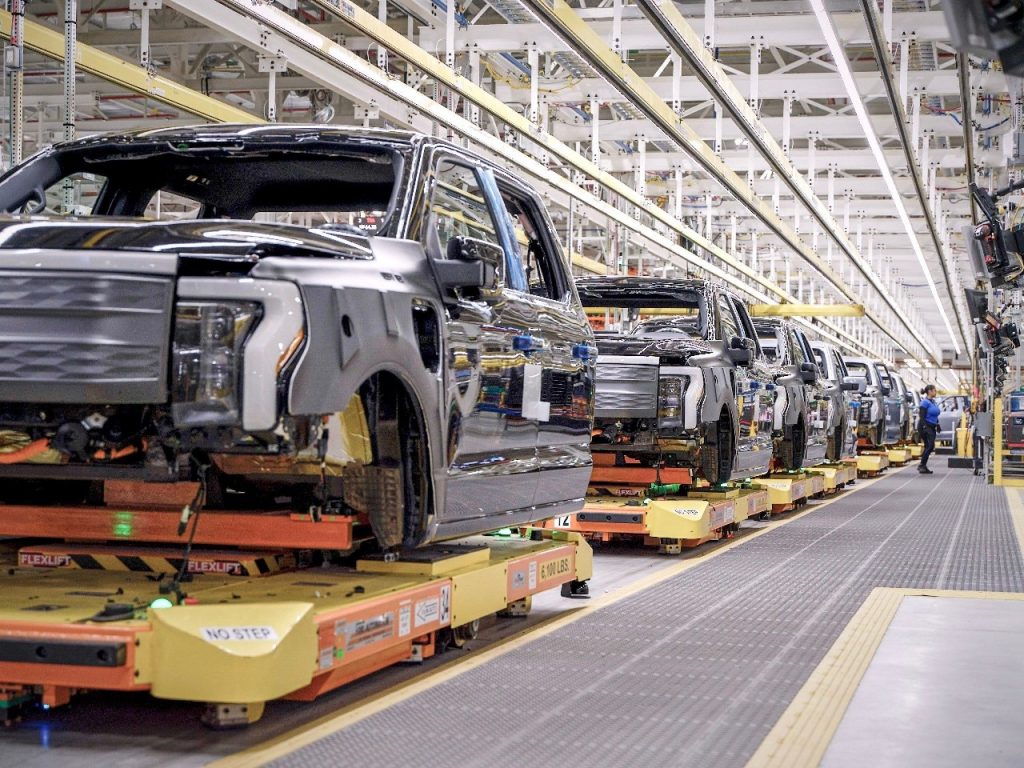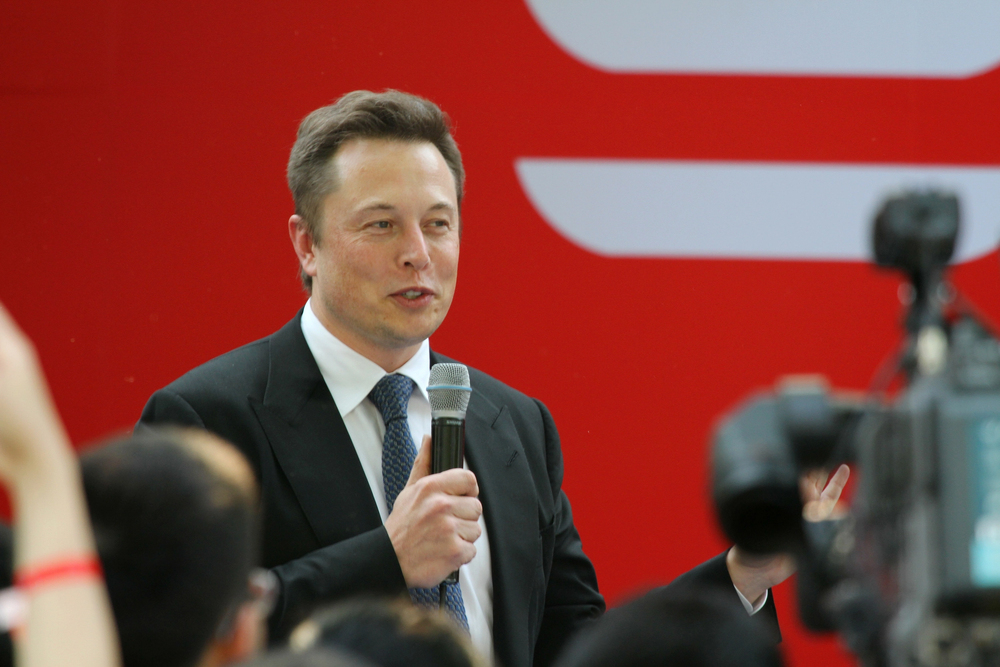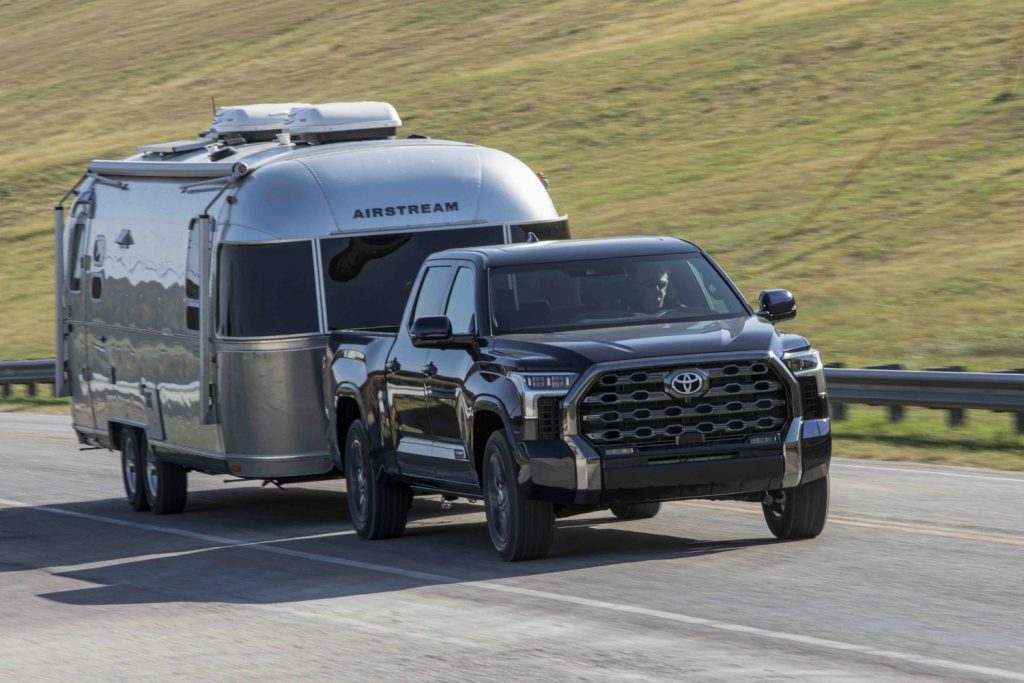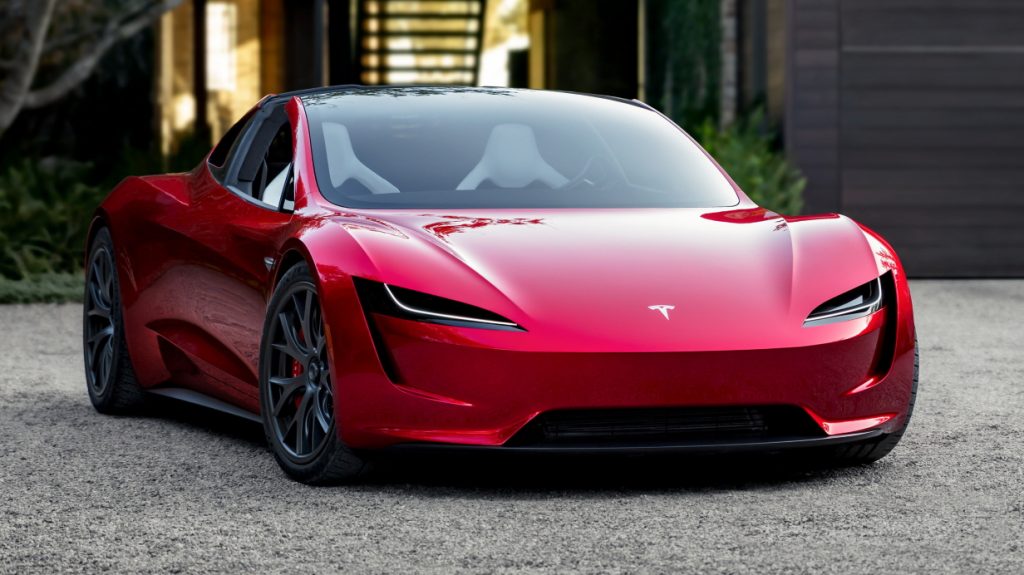The world of car sales is entering a new era. There were hints of it last year, when the sales of hybrid vehicles began to explode, but now, thanks to that already-softening demand of EVs and now the lack of a federal tax credit to incentivize sales, it’s clearer than ever: EVs are on the downturn.
The proof lies in October sales, which were released earlier this week; the first round of real data shows just how important that federal incentive was. It revealed a drop of 43 percent year over year. The numbers are forcing automakers to consider whether building EVs is even worth their time. And the first casualty of that thought process could be one of the most important EVs of the 2020s: the F-150 Lightning.
What else is going on in the world? Tesla CEO Elon Musk finally got approval for his controversial $900 billion pay package, winning more than three-quarters of shareholder votes. Whether he’ll actually perform well enough to earn enough to make him the world’s first trillionaire remains to be seen, though it seems unlikely.
Then there’s Toyota, which is building V6s that grenade themselves. The company has recalled another 127,000 engines for “machining debris” that could cause total failure. Oh, and Tesla has delayed the Roadster again, this time to April Fools’ Day, 2026. Let’s get into it.
Ford Reportedly Might Not Bother With Resuscitating F-150 Lightning Production

Back in September, an aluminum plant in Oswego, New York suffered a big fire that reportedly “leveled” a key part of its facility, according to the Wall Street Journal. This plant supplied aluminum to several automakers producing cars in the U.S., with Ford reportedly being the most affected. It was the biggest user of that plant, sourcing material to build its aluminum-bodied F-150—the most popular passenger vehicle in the country.
In response to this supply chain disruption, Ford paused production of the F-150 Lightning to focus production on the more profitable, higher-demand gas-powered variants. This makes a lot of sense; the F-150 Lightning may have been the best-selling EV truck last quarter, but the 10,000 units moved are just a drop in the bucket compared to the 207,000 gas-powered F-150s sold in the same period.
With demand for electric vehicles now falling off a cliff, Ford is reportedly considering whether to restart production of the F-150 Lightning at all, according to this report from the Wall Street Journal:
Ford Motor executives are in active discussions about scrapping the electric version of its F-150 pickup, according to people familiar with the matter, which would make the money-losing truck America’s first major EV casualty.
The Lightning, once described by Ford as a modern Model T for its importance to the company, fell far short of expectations as American truck buyers skipped the electric version of the top-selling truck. Ford has racked up $13 billion in EV losses since 2023.
Overall EV sales, already falling short of expectations, are expected to plummet in the absence of government support. And big, electric pickups and SUVs are the most vulnerable.
The report goes on to say that no final decision has been made, though considering Ram made the call to cancel its yet-to-be-released EV pickup just two months ago, I wouldn’t be surprised to see Ford follow suit. The signs of reduced EV truck demand are elsewhere in the market, too. Rivian, makers of the R1T pickup, just laid off 600 people. And sales of Tesla’s electric pickup, the Cybertruck, haven’t been doing well for months.
It’s not just the F-150 that’s in danger. WSJ says General Motors executives are considering axing some electric trucks from the lineup, too, citing “people familiar with the matter.” The company builds three electric pickups right now: The Silverado EV, the Sierra EV, and the Hummer EV.
In the near future, I predict the demand for electric trucks will stay level or trickle down slightly. The truth is, most people want a gas engine in their pickups if they want to do pickup things, like towing and hauling. The proof can be seen in reservations for Scout’s new truck, where 80% of buyers want the range extender over the pure EV.
Trucks that rely on battery power alone are not the move for serious tow duty, as pulling all that extra weight zaps range to impractical levels. Plus, electric trucks are usually more expensive than their ICE-powered counterparts. Extended-range EV pickups like the new Scout and Ram’s upcoming 1500 REV have all of the same benefits as a pure EV, plus they can cover the range problem thanks to the onboard gas generator. For most buyers, it’s the logical solution.
Elon Gets His Wish. Now He Has To Make It Happen

Back in September, Tesla proposed a new pay package for CEO Elon Musk that, should he accomplish a series of lofty financial benchmarks, would add nearly $900 billion to his net worth, making him the world’s first trillionaire. Perhaps unsurprisingly, this proposal faced lots of criticism, seeing as how it would make Musk, already the world’s richest person, the highest-paid CEO in the history of CEOs.
Many believe Tesla’s valuation and future success hinge on Musk staying as CEO, though the South African-born exec seems to believe his most important role will be being in control of the company’s forthcoming robot army. Either way, shareholders of the automaker voted overwhelmingly to ratify the pay package, with Musk celebrating in the only way he knows how: Next to his machines. From Reuters:
The proposal was approved with over 75% support, and Musk bounded to the stage of the company’s annual meeting at its factory in Austin, Texas, accompanied by dancing robots.
Musk, already the world’s richest person, could get as much as $1 trillion in stock over the next decade, although required payments would take the value down to $878 billion.
The vote is crucial for Tesla’s future and its valuation, which hangs on Musk’s vision of making vehicles that drive themselves, creating a robotaxi network across the U.S. and selling humanoid robots, even though his far-right political rhetoric has hurt the Tesla brand this year.
“What we are about to embark upon is not merely a new chapter of the future of Tesla, but a whole new book,” Musk told a cheering group of shareholders.
[…]
“Other shareholder meetings are like snoozefests, but ours are bangers,” Musk said. “I mean, look at this. This is sick.”
It’s important to note that Tesla won’t just hand Musk $878 billion over the next decade. The package requires him to accomplish some incredibly lofty tasks, including growing Tesla’s stock value by eight times, deploying a million robotaxis, selling a million humanoid robots, selling 20 million more cars, growing full self-driving subscriptions to 10 million users, and increasing operating profits to $400 billion. As I said in my previous coverage of Musk’s pay proposal, doing all of that seems pretty impossible, considering Tesla’s reputation and aging lineup.
Toyota Still Can’t Get Its V6s Right

Last year, Toyota, widely known as builders of some of the most reliable, durable, and longest-lasting vehicles on the planet, caught a lot of flak for having to replace the engines in over 100,000 trucks and SUVs equipped with the company’s relatively new 3.4-liter twin-turbo V6.
Back then, Toyota said leftover machining debris from the factory was wreaking havoc on the V6’s internals, could could lead to engine knock and total engine shutdown. The company quickly reworked its manufacturing process, saying that any engine built after those deemed potentially faulty “were manufactured with new or improved processes that better clear machining debris.”
Well, it turns out that the new process wasn’t good enough, because Toyota is recalling even more V6s for the same problem. From the company’s website:
Toyota is conducting a safety recall involving certain model year 2022-2024 Toyota Tundra, 2022-2024 Lexus LX, and 2024 Lexus GX vehicles in North America. Approximately 127,000 Toyota- and Lexus-branded vehicles (conventional gas models only) are involved in this recall in the U.S.
There is a possibility that certain machining debris may not have been cleared from the engine when it was produced. In the involved vehicles, this can lead to potential engine knocking, engine rough running, engine no start, and/or a loss of motive power. A loss of motive power while driving at higher speeds can increase the risk of a crash.
Toyota says it’s “currently developing the remedy” for this problem, though if I had to guess, it’s probably just going to replace these engines like it did with the last bad batch. If I were an owner, that’s what I’d want. Even if an engine doesn’t immediately fail due to errant metal debris, I’d worry it could be enough to cause serious damage in the long term.
Can You Believe It? The Tesla Roadster Has Been Delayed Again

In what is undoubtedly the least surprising news of the week, the long-awaited Tesla Roadster 2.0 has been delayed for what feels the 37th time. This comes after reports that Musk had planned to show off the car by the end of this year. The new proposed reveal date isn’t inspiring much confidence. From TechCrunch:
Tesla CEO Elon Musk said Thursday the company will reveal the production version of its second-generation Roadster supercar on April 1, 2026 — nearly nine years after he first revealed the project.
Musk, who is famous for missing deadlines, said during Tesla’s annual shareholder meeting that he chose April Fools’ Day in part because it affords “some deniability.”
“Like, I could say I was just kidding” if it happens to be later, he said.
In some even more upsetting news for reservation-holders of the car, Musk went on to say that production of the Roadster won’t begin until 12 to 18 months after the reveal. So, at minimum, it won’t be until April 2027 that this car hits the road—nearly an entire decade since it was first revealed.
If Musk is to be believed, the production Roadster should, at least, be pretty different from the car we saw in 2017. From TechCrunch:
Musk stressed Thursday the car “will be very different from what was shown previously,” and again teased that the demo will be the “most exciting, whether it works or not, demo ever of any product” — a not-so-sly nod to the fact that he’s spent years trying to make the new Roadster fly in some fashion, possibly with SpaceX-built thrusters.
I’ll believe it when I see it (on the road, that is).
What I’m Listening To While Writing TMD
I love Gorillaz, even if they’re not a real band. Elon, celebrating his trillion-dollar pay package next to his robots, reminds me of this lyric from the song “Saturnz Barz” from the virtual group’s 2017 album Humanz:
With the holograms beside me
I’ll dance alone tonight.
In a mirrored world, are you beside me
All my life?
I hope all that money is worth it.
The Big Question
Should Ford and GM discontinue production of its EV pickups?
Top graphic images: Ford; Eastwing








Big question answer is yes. Anyone who actually needs a pickup won’t be served by an EV PICKUP. Let posers buy SUVs if they don’t really need a pickup.
And as far as voting a pay package for Elon let’s admit he is just owning one island away from being a super villain if you work for the company you don’t go against a super villain. And let us not forget the super villain was brought to us by the left and now they complain but they are responsible.
Sort of like the Democrats party of slavery and Jim Crow and trying to blame Republicans for racism.
Great, now it’ll never get NACS!
I’ve been in the market for it for a while, just been waiting for it to get NACS, and preferably a 3 row front bench setup like the one that is optional for the ICE F-150.